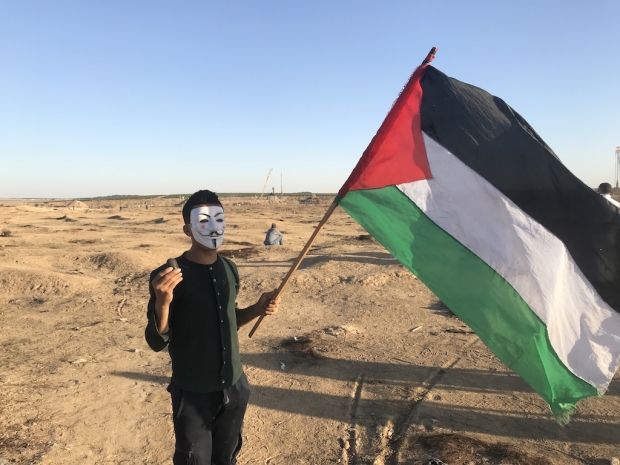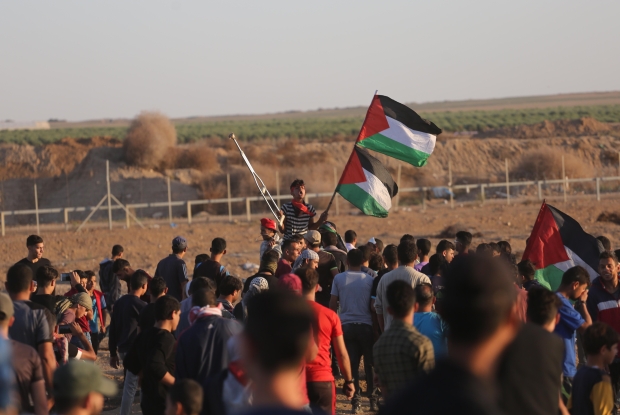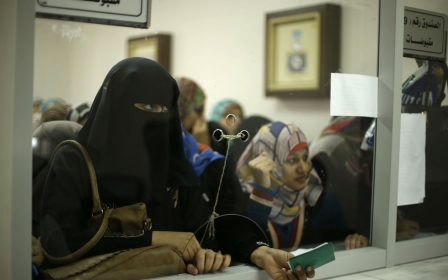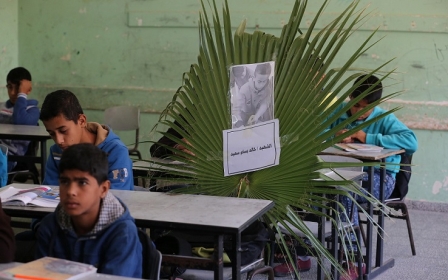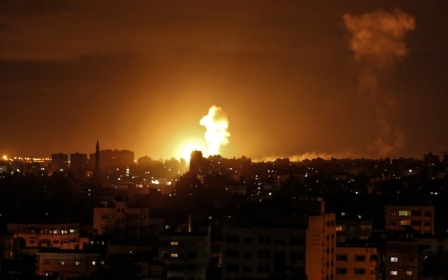Palestinians protest in Gaza despite attempt to quell demonstrations
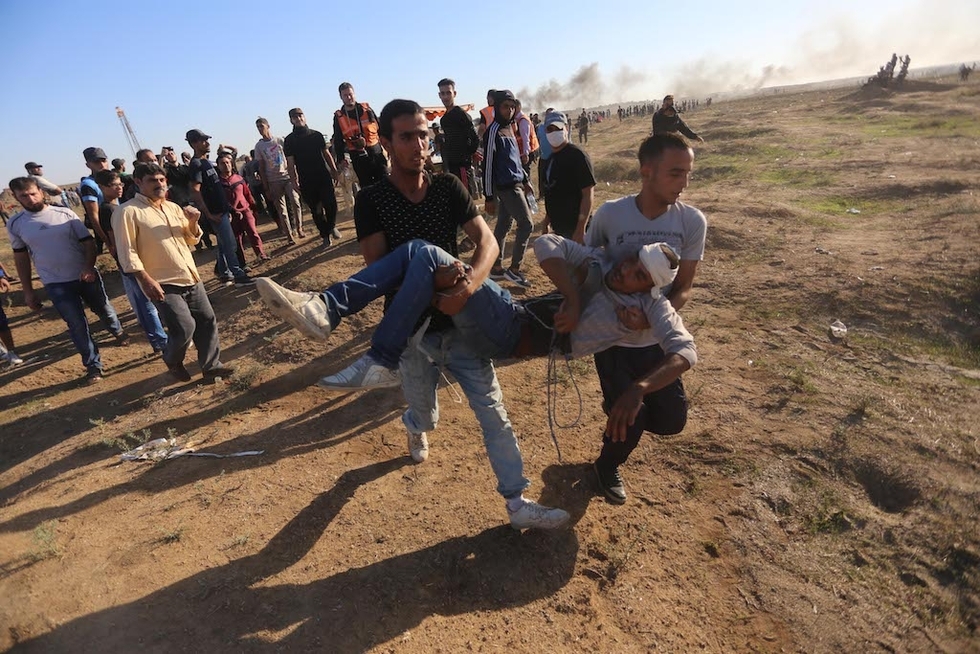
GAZA STRIP – Palestinians in the Israeli-besieged Gaza Strip protested on Friday once again, vowing not to let political leaders restrict their right to demonstrate.
Ahead of Friday's protest, which was the 32nd "Great March of Return" demonstration calling for an end to Israel's blockade and the right of return for Palestinian refugees, organisers met with Hamas, Islamic Jihad, other Gaza-based Palestinian factions and a delegation from the Egyptian military.
Middle East Eye understands that Israel, in an attempt to quell the protests and stop incendiary balloons and kites from being sent over the Israel-Gaza frontier onto Israeli farmland, promised an easing of certain restrictions if Hamas keeps protesters from the separation barrier, where many demonstrators have previously congregated.
However, the protests are organised by the National Committee for the Great Return March, who on Thursday agreed to encourage protestors to stay away from the frontier area.
Following the organisers' meeting with Hamas and Egyptian officials, they released a statement calling on Palestinians to participate in Friday's protest, and emphasising the importance of keeping the demonstration peaceful in order “not to give the Israeli snipers the chance” to target civilians.
Despite this, Israeli forces wounded 32 Palestinians who were partaking in what was dubbed the “Friday of Overthrowing Balfour's Declaration”. Friday saw the 101st anniversary of the British call for Jewish homeland in historic Palestine.
Non-negotiable right
Ahmed Aburtema, spokesperson for the National Committee for the Great Return March, said that peaceful assembly was a “non-negotiable right”, and that Palestinians would continue to demand their right to return.
“There is no intention to put an end to the protests. This is a legal right and no international convention prohibits peoples’ will to stand against occupation,” Aburtema told Middle East Eye.
“The protestors may stop burning tyres and flying burning kites only to prevent more deaths among unarmed civilians,” he added.
Since the beginning of the protests on 30 March, 218 Palestinians have been killed, and more than 23,000 other have been wounded, including 5,607 by live ammunition, according to Gaza's health ministry.
Decrying Balfour
Palestinians gathered on Friday about 800 metres from the eastern Gaza separation fence where “return tents” were erected.
Protesters wore traditional clothing and chanted national songs and slogans against the Balfour Declaration.
I am from Jaffa and I want to live in my grandfather’s home there. Why wouldn’t I speak up and say it? It is impossible for me to waive my rights
- Mariam al-Haddad, protester
“We are here today to declare that more than a hundred years after the Balfour Declaration, we will continue to fight for our rights even if it will cost us another hundred years of struggle,” said 18-year-old protestor Belal al-Ghurran.
“We will not make the same mistake twice and let others decide for us. The Balfour Declaration happened once and will never happen again.”
Ghurran, who has been attending the protests every week, told MEE that he would continue to demand his right to return “in the nearest place to my original homeland".
“No one forced us to participate since the protests first started, and no one can force us to stop now."
Mariam al-Haddad agreed, emphasising that Palestinians were "well aware of several attempts to extinguish the protests’ flame”.
Haddad said the international community’s lack of will to act is what gives Israel “the green light to continue its violations”.
“The international community should finally stop standing on the fence and portray the occupation as a victim. We are the ones who were expelled from our home,” she added.
“I am from Jaffa and I want to live in my grandfather’s home there. Why wouldn’t I speak up and say it? It is impossible for me to waive my rights."
New MEE newsletter: Jerusalem Dispatch
Sign up to get the latest insights and analysis on Israel-Palestine, alongside Turkey Unpacked and other MEE newsletters
Middle East Eye delivers independent and unrivalled coverage and analysis of the Middle East, North Africa and beyond. To learn more about republishing this content and the associated fees, please fill out this form. More about MEE can be found here.


